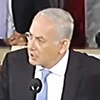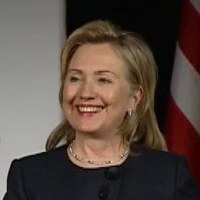![]()
Sun, Aug 21, 2011 | The Meir Amit Intelligence and Terrorism Information Center

Ali Sa’idlou, the president’s new advisor on international affairs. (Photo: Hossain Mosavi Taraz/Fars news agency)
Ahmadinejad’s decision to appoint an ally as advisor on international affairs strongly criticized
A decision made by President Ahmadinejad last week to appoint his ally Ali Sa’idlou as vice-president on international affairs drew strong criticism from the media and Majles members, who argued that the appointment creates unnecessary redundancy in the conduct of Iran’s foreign policy. The president’s critics further claimed that Sa’idlou is not qualified for the job, and warned that the appointment of a person like that can jeopardize Iran’s national interests.
Mohammad Karami-Rad, a member of the Majles National Security and Foreign Policy Committee, told the Farda news website that Sa’idlou, who formerly served as the head of the Physical Education Organization, has no background in foreign policy, and that no good can come from his appointment. Majles member Mostafa Kavakabian also criticized Sa’idlou’s appointment as the president’s advisor on international affairs, claiming that the appointment undermines the status of the foreign ministry and its ability to engage in diplomatic contacts (Farda, August 11).
Majles member Mohammad Taqi-Rahbar also said that there is no justification for appointing Sa’idlou to a position that never existed in the president’s office, and that it creates a problematic redundancy in the conduct of foreign policy (www.icana.ir, August 10).
Criticism of Sa’idlou’s appointment as the president’s advisor was also voiced by media close to the president’s critics. An editorial published last week by the reformist daily Mardom Salari warned about the repercussions of the appointment for the national interests of Iran. The daily argued that the decision to appoint Sa’idlou is a follow-up to the decision made by the president last year to appoint some of his allies (including his controversial office chief Esfandiar Rahim Masha’i and Hamid Baqa’i) as special advisors on international affairs. The decision provoked strong opposition and was even implicitly criticized by Supreme Leader Ali Khamenei, who ruled that the government should avoid redundancy in its areas of responsibility, including foreign policy. The decision was one of the causes for the resignation of former foreign minister Manouchehr Mottaki. The daily warned that Sa’idlou’s lack of foreign policy experience may have severe repercussions for the foreign policy of Iran, similar to those caused by Hamid Baqa’i’s appointment as the president’s advisor on international affairs. According to Mardom Salari, Baqa’i’s remarks on the Armenian massacre during World War I led to a crisis in Iran-Turkey relations; in addition, he undermined Iran’s status by holding official visits to Egypt and Yemen on the eve of the popular uprisings that broke out in those countries (Mardom Salari, August 11).
The Fararu website also noted Sa’idlou’s inexperience in foreign policy, arguing that the appointment shows that the president does not believe in official channels and keeps creating new offices to expand his control over the conduct of foreign affairs (Fararu, August 10).



 RSS
RSS










#Ahmadinejad’s decision to appoint an ally as advisor on international affairs strongly criticized | #Iran http://t.co/TLMJFui
#Ahmadinejad’s decision to appoint an ally as advisor on international affairs strongly criticized | #Iran http://t.co/TLMJFui
#Ahmadinejad’s decision to appoint an ally as advisor on international affairs strongly criticized | #Iran http://t.co/TLMJFui